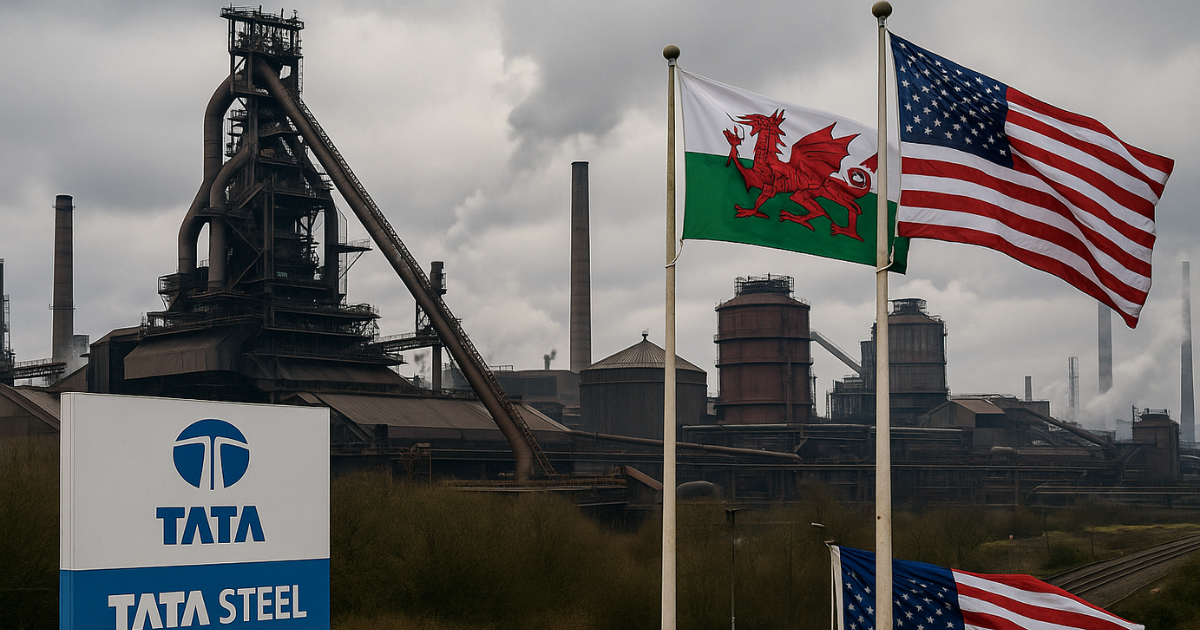India–US Trade Tensions Rise Over Steel and Auto Tariffs NMDC Limited reports a 38% drop in Q4 FY24 consolidated net profit RINL to Raise $23 Million Through Land Sales Amid Crisis

Tata Steel’s Port Talbot Plant Complicates UK–US Steel Talks
Ongoing trade negotiations between the UK and US hit a roadblock over steel tariffs, largely due to Tata Steel’s Port Talbot operations. While recent agreements at the G7 summit covered tariffs on cars and aerospace goods, steel remains excluded amid concerns from Washington.
The issue centers on Port Talbot’s reliance on imported steel slabs following the closure of its blast furnaces in 2023. The plant now processes semi-finished steel from Tata facilities abroad, raising compliance questions under US “melted and poured” rules, which require full domestic production for tariff exemptions.
The US is demanding greater transparency on material sourcing and a firm timeline for the plant’s transition to electric arc furnace (EAF) technology, expected by 2027. Without these assurances, American officials are hesitant to lift the current 25% tariff on UK steel imports.
British negotiators are working urgently to resolve the standoff, aiming for a deal before a July 9 deadline. The UK is also emphasizing that Port Talbot’s supply chain excludes Chinese-origin steel—a factor that could bolster its case.
Meanwhile, UK steel producers face uncertainty, with potential tariffs rising to 50% if no agreement is reached. Industry leaders warn that delays could jeopardize over £150 million in annual exports and put thousands of jobs at risk.
Also Read : Duke Energy removes CATL batteries amid security fears US pushes for triple tariffs on Chinese steel, aluminium